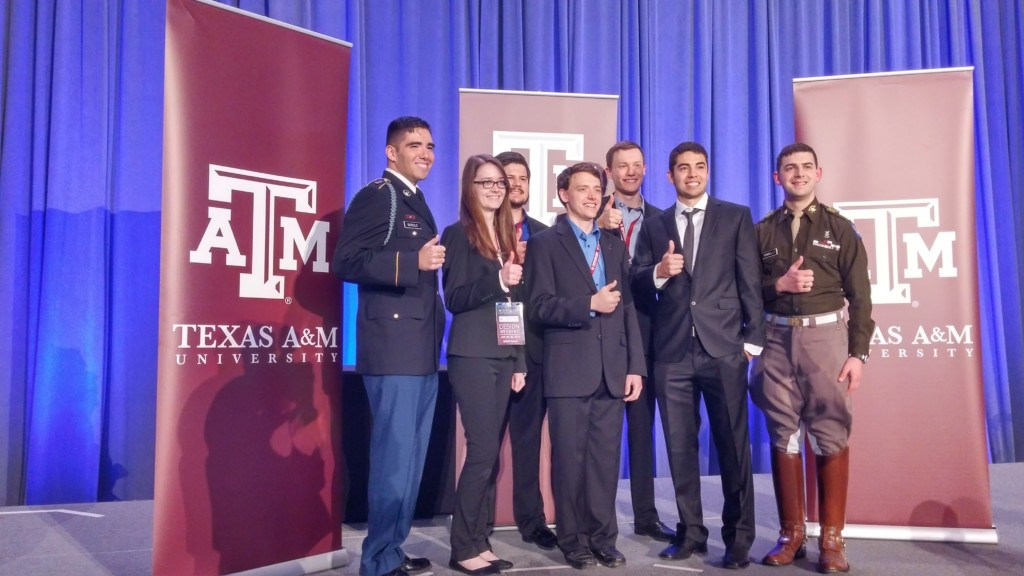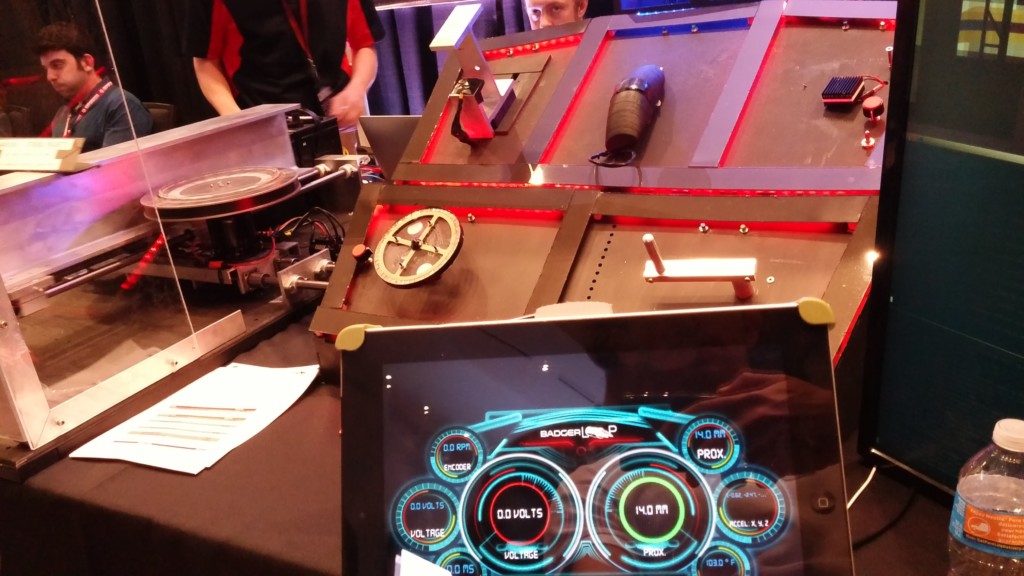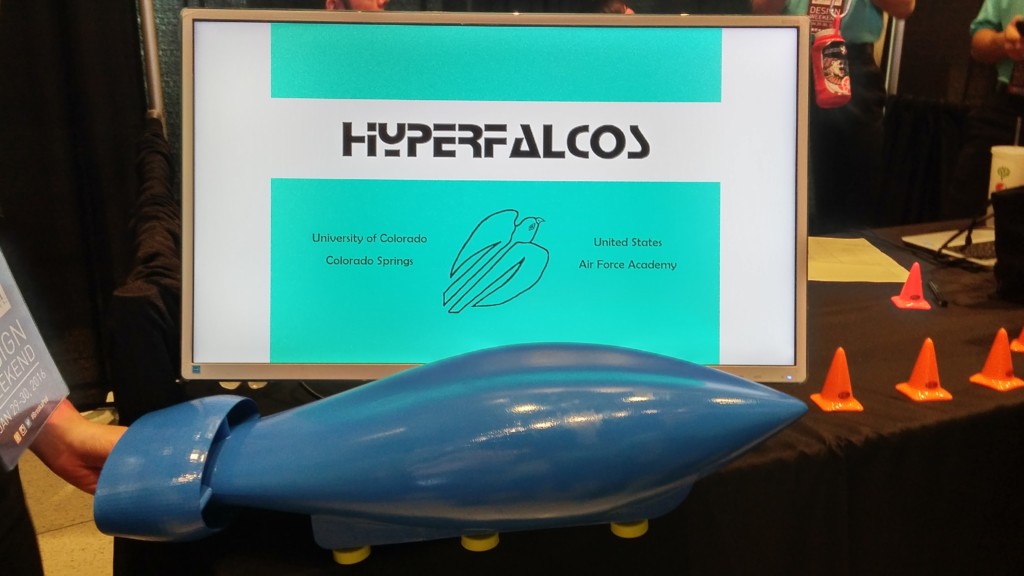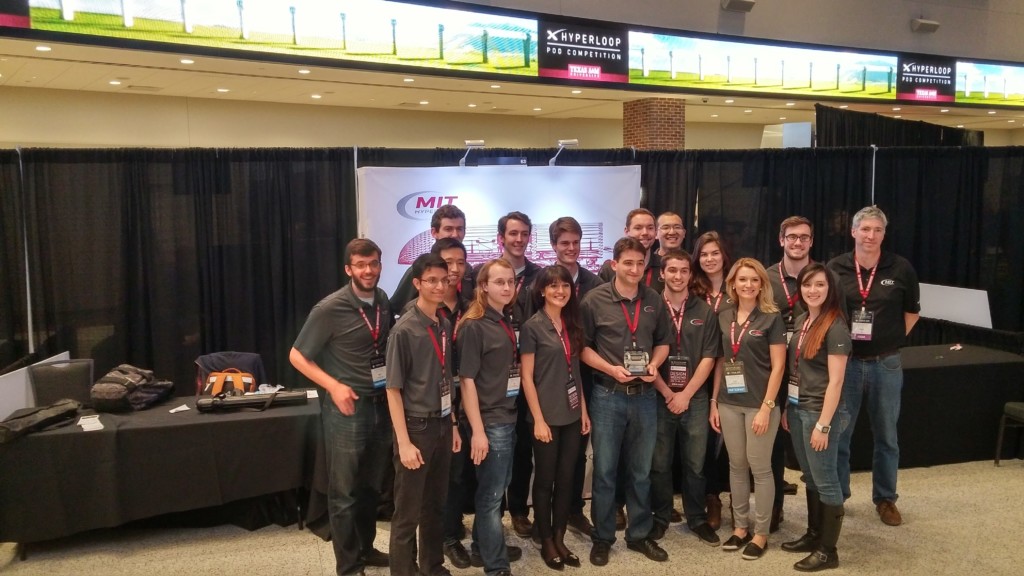The Hyperloop, dubbed the fifth mode of transportation, is a concept in which an almost-vacuum tube connects to distant cities together and capsules (or pods) travelling within the tube are used as a transportation device between these cities. The first assessment of this concept suggests that the optimal distance (in terms of time saved and cost efficiency) between cities is around 900 miles.
For more detailed information on the Design Weekend, please visit: hyperloop.tamu.edu
Design Weekend
The initial Hyperloop Design Weekend was held on January 29th, 2016 at Texas A&M University. It was a joint effort between SpaceX and Texas A&M University to engage university students and faculty from across the world in order to advance the technology from the concept to prototype level and pursue meaningful first results. More than 240 teams participated in the competition, and some of these moved forward to build a preliminary test pod that will run on a half-scale (by diameter) test track.
Pod Testing
The testing stage is slated to happen in August or September 2016. The teams that advanced to the testing stage will build their pod and test it in SpaceX’s half-scale Hyperloop test track, located in Hawthorne, CA. This second event will also be held in competition format and teams will have to accelerate their prototype pods using a common pusher. Subsequently the pods will have to decelerate the pods before arriving to the end of the 1-mile test track. The first results that address the feasibility of the various technical challenges will be analyzed.
Design Weekend Awards
- Best Overall Subsystem Award: Auburn University | Auburn University Hyperloop Team
- Top Design Concept Award: Universitat Politècnica de Valencia Makers UPV Team
- Top 5 Overall:
1. Massachusetts Institute of Technology | MIT Hyperloop Team
2. Delft University of Technology | Delft Hyperloop
3. University of Wisconsin, Madison | BadgerLoop
4. Virginia Tech | Hyperloop at Virginia Tech
5. University of California, Irvine | HyperXite
In addition to getting through to the Pod Testing competition, the Aerospace Hyperloop team from Texas A&M University won the subcategory for Best Levitation System. The Aerospace Hyperloop team designed a novel air bearing system that allowed levitation with minimal air flow to the enclosing tube.
Organization
The ASTRO Center was involved in the organization of this event by contributing to several aspects of it. Student teams were invited to Hyperloop workshops in which faculty members with specific expertise in the different technical areas unraveled these challenges to the students, gave a clear perspective on how to proceed in solving them and what how to take into account future blind spots in the design progress. The judging rubric and schedule were developed with the utmost scrutiny and several iterations were reviewed before being finalized. This ensured transparency, consistency and fairness of judging throughout the Design Weekend to reward those teams that did the best, and addressed all technical challenges successfully.
The overall organization of the event was due to major contributions from the College of Engineering Dean’s Office, the Engineering Innovation Center, SpaceX leadership and the ASTRO Center.







